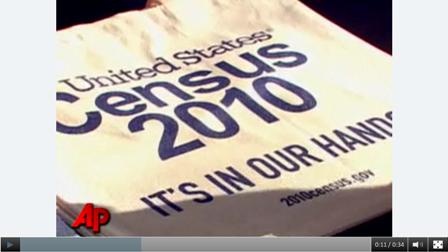 WASHINGTON – A wave of government layoffs in September outpaced weak hiring in the private sector, pushing down the nation's payrolls by a net total of 95,000 jobs.
WASHINGTON – A wave of government layoffs in September outpaced weak hiring in the private sector, pushing down the nation's payrolls by a net total of 95,000 jobs.
The unemployment rate held at 9.6 percent last month, the Labor Department said Friday. The jobless rate has now topped 9.5 percent for 14 straight months, the longest stretch since the 1930s.
The report is the final one before the November elections, which means members of Congress will face voters next month who are frustrated with an economy that is still struggling to create jobs.
The figure that may matter most is 18,000 — the number of positions lost after subtracting the 77,000 temporary census jobs that ended in September. That marks the first loss for that grouping since last December, according to economists at Nomura Securities.
Another troubling sign is a sharp rise in people working part time who would prefer full-time work. Their ranks have increased by nearly 1 million since July and total 9.5 million, the most on records dating from 1955.
When adding that to the 14.8 million unemployed and the 2.5 million who have stopped looking for work, there are a startling 26.8 million Americans who are "underemployed." That's 17.1 percent of Americans who want to work.
Government job losses led the declines in September. A net total of 159,000 public-sector jobs were eliminated. Local governments cut 76,000 jobs last month, most of them teachers. That's the largest cut by local governments in 28 years. States cut 7,000 jobs. The rest were census jobs.
The private sector is not compensating for those losses. Companies added only 64,000 jobs. That's the fifth straight month of weak private hiring. And it's roughly half the pace needed simply to keep up with population growth and hold down the jobless rate.
"The labor market remains far too weak to raise confidence among consumers, lift spending and in turn spur businesses to step up hiring," Sophia Koropeckyj, an economist at Moody's Analytics, wrote in a note to clients.
The local government job losses reflect the toll the recession is taking on state and local government budgets. Falling home values are just beginning to push down local governments' property tax revenues. Most state and local governments are required to balance their budgets, which means drops in revenue are forcing cuts in services.
Local officials say more cuts are coming. The National League of Cities projects that local governments will cut 480,000 jobs this year and next. More jobs will be lost among private companies that do business with cities.
The weak job market makes it more likely that the Federal Reserve will take additional steps to boost the economy. Most economists expect the Fed to decide at its meeting next month to buy government debt in an effort to lower interest rates and spur more borrowing.
That expectation enabled investors to take the jobs report in stride. The Dow Jones industrial average rose 29 points in midday trading. Other indexes were mixed.
Even areas of the economy that were strong earlier this year are weakening.
Manufacturers cut 6,000 jobs, the second straight month of losses. The sector drove job growth after the recession ended, adding 134,000 positions in the first five months of 2010. But factory employment has been flat since then.
Construction firms cut another 21,000 jobs, hampered by weakness in commercial real estate development. Information services lost 5,000 positions.
Some sectors showed job gains. For example, the health care industry added 32,000 jobs.
But most of the new jobs don't necessarily pay well. The leisure and hospitality sector added 38,000 jobs — many in bars and restaurants. Retailers added 5,700. Temporary help services hired nearly 17,000 workers.
Anemic job growth is also holding down wages. Average hourly earnings rose by just a penny in September and are up only 1.7 percent in the past year.
Employers, faced with slow sales and a weak economy, see little reason to ramp up hiring. The economy expanded at a feeble 1.7 percent annual rate in the April-June quarter. Most analysts think the economy will fare little better for the rest of this year.
Since the recession ended in June 2009, the economy has grown 3 percent, according to economists at Deutsche Bank. That's less than half the average 6.5 percent pace in postwar recoveries.
The department said the economy shed 15,000 more jobs in July and August than previously estimated.
The government also issued a preliminary estimate of its annual revision to the jobs data. The revision is made after examining unemployment insurance tax records. The department said the revision is likely to show the economy lost 366,000 more jobs that it previously thought in the 12 months ending in March 2010.




















































































































































































































































































































